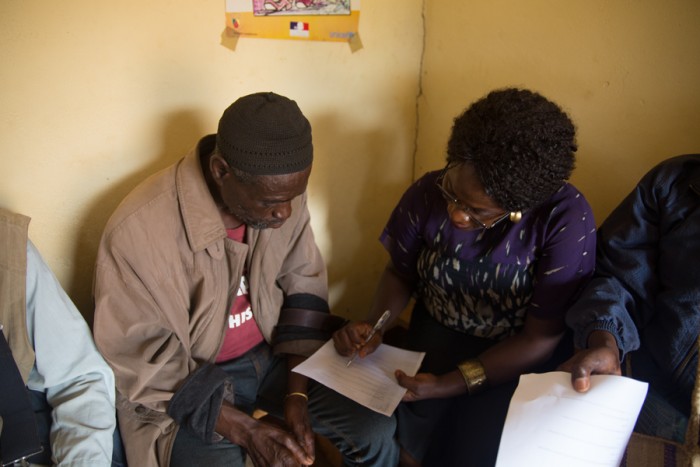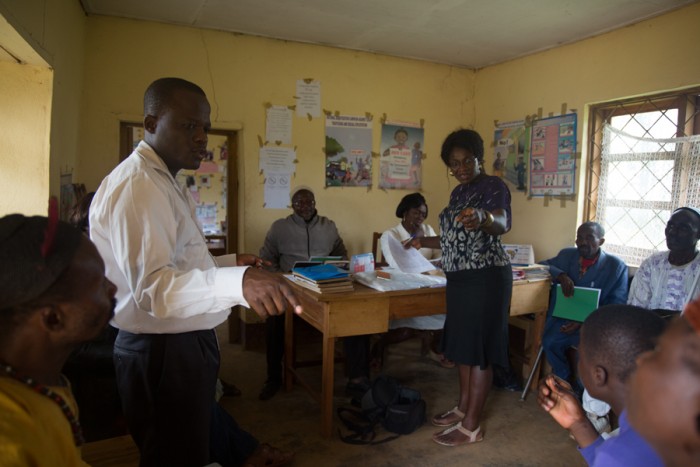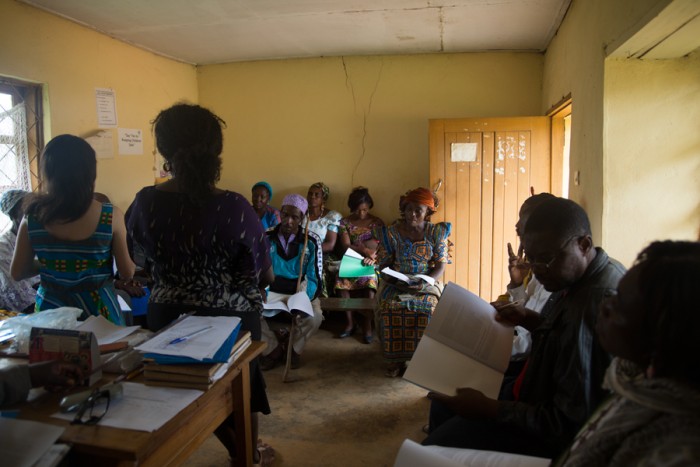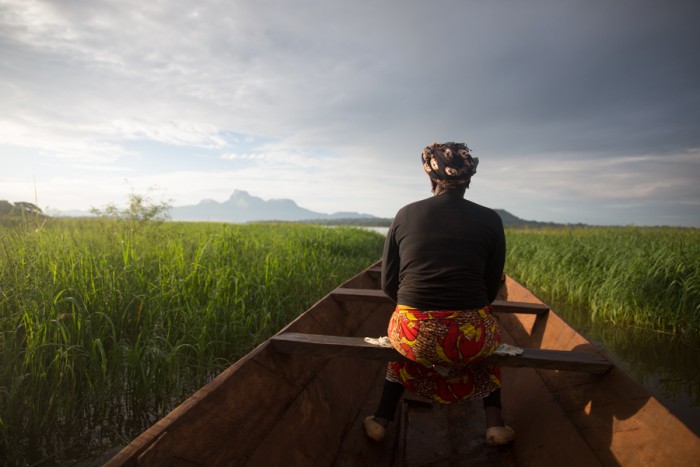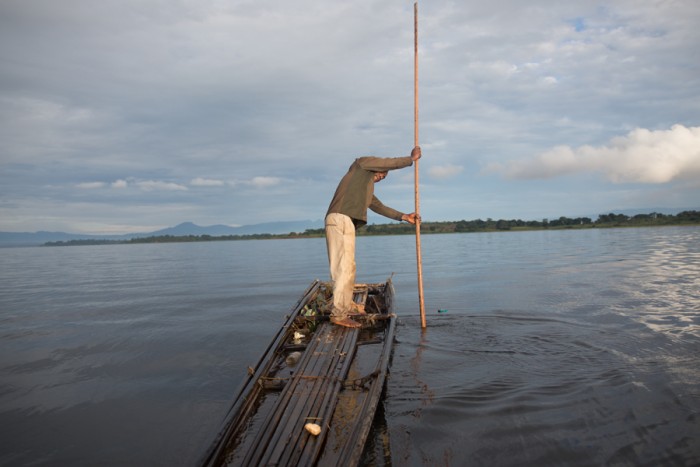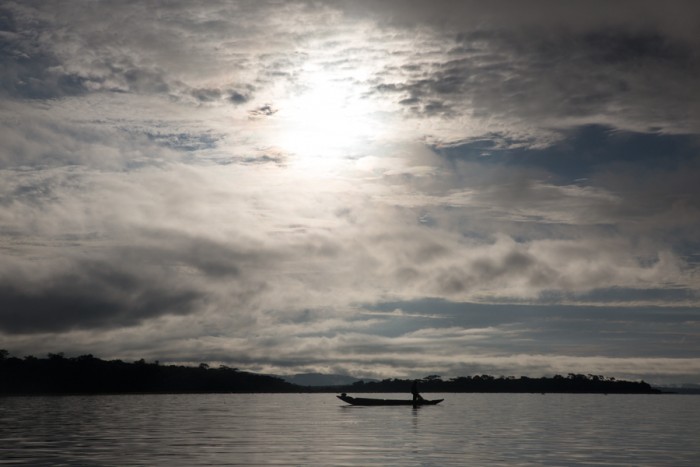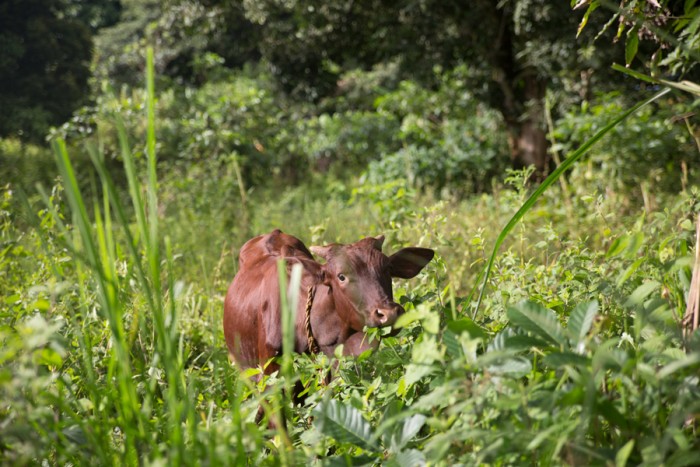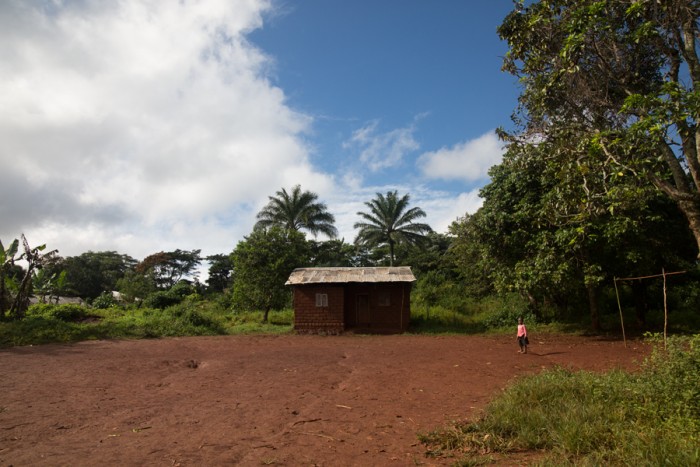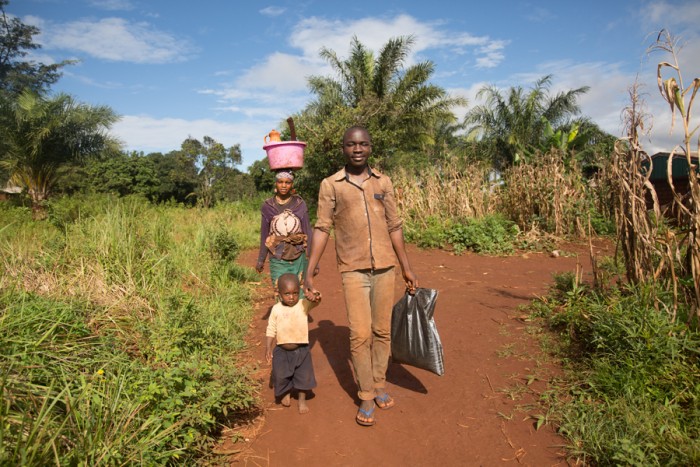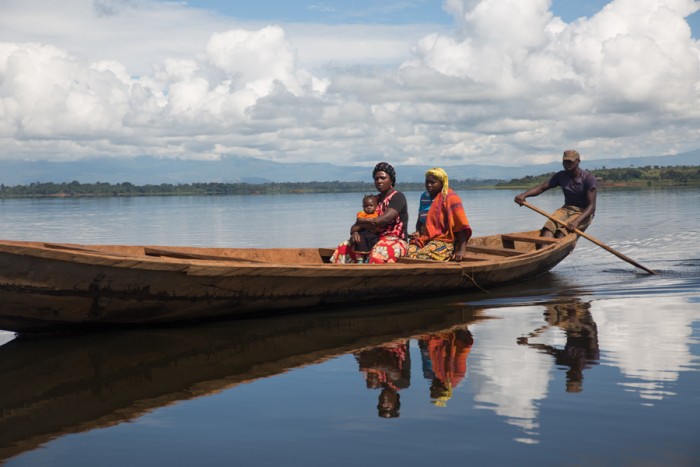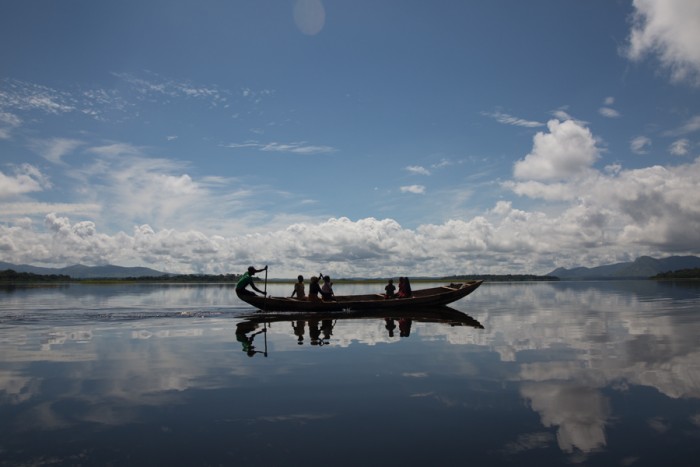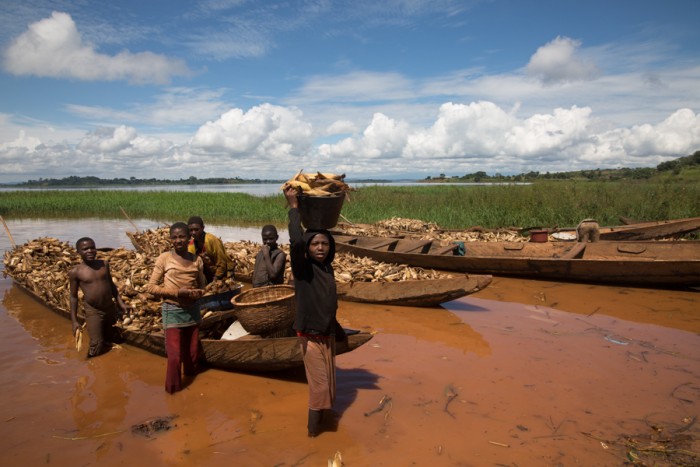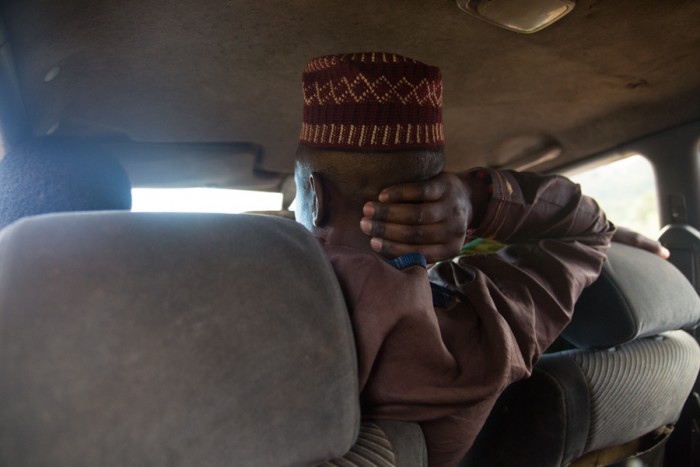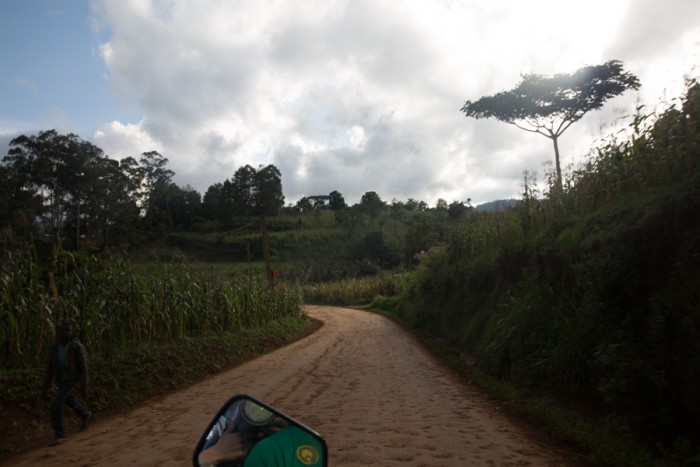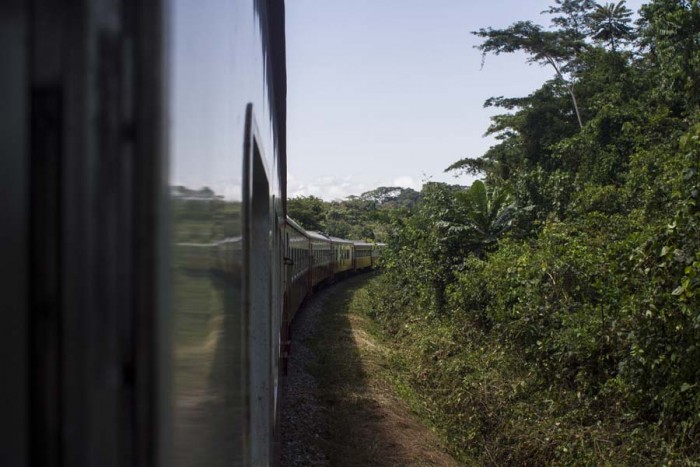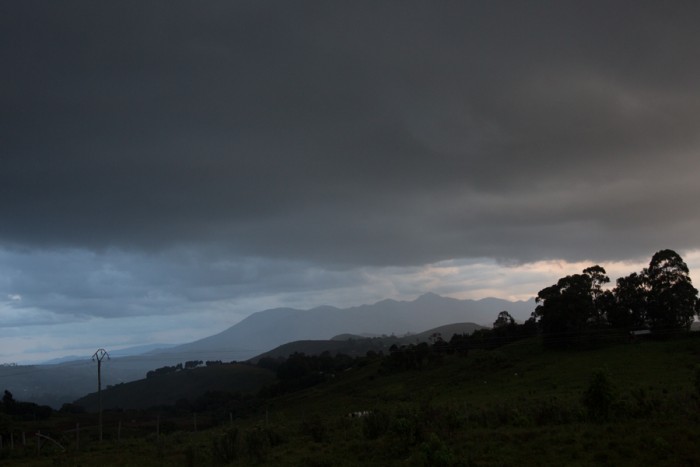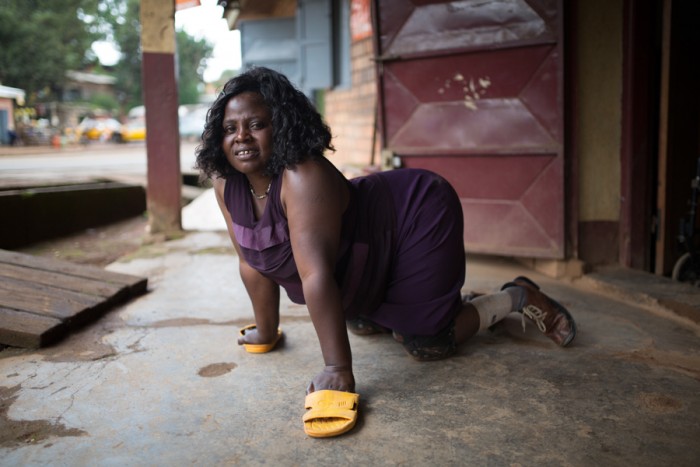August 21st, 2016 by Rachel | Tags: Disability, HIV/AIDS, Peace Corps | No Comments »
In collaboration with Coordinating Unit of Association of Persons with Disabilities, we conducted a training of trainers workshop for 17 persons with disabilities from four different villages in Tubah sub-division, Bambui, Bambili, Kedjom-Keku, and Kejoum Ketingoh to teach them how to educate other persons with disabilities in their communities about HIV prevention in order to be able to grow the number of persons with disabilities becoming more knowledgeable about HIV. All participants came to the training with a clear indication that they already had solid knowledge of HIV. 11 participants scored 100% on the pre-test. The rest missed only one or two answers. The training did however give them an opportunity to hone their knowledge as 15 out of 17 participants scored 100% on the post-test and one missed only one answer. Then one did not complete the post-test due to leaving the training early. It was important for them to have a good solid knowledge in order to be able to educate others with correct information. They were all provided with a manual to use to assist them in sharing information.
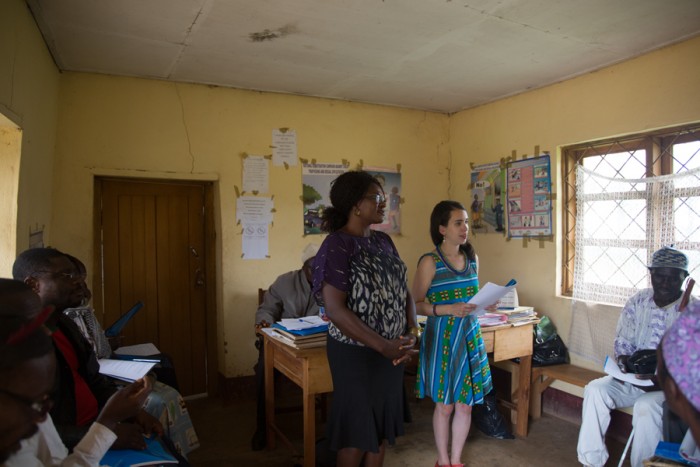
August 21st, 2016 by Rachel | Tags: Peace Corps, Photography | No Comments »
I traveled to Bambalang, a village located about three hours from Bamenda, the capital of the Northwest region, and under two hours from Bafoussam, the capital of the West region. To travel there from Bamenda, I first had to take a one hour taxi to a “car park,” a place where I can find cars heading to various different towns. The taxi ride took so long primarily because of traffic in the city and making several stops. Then I took an hour car ride to a town called Ndop. When I arrived in Ndop, I took a one hour moto bike ride through the beautiful countryside of Northwest.
Bambalang is one of the most beautiful villages I have seen in Cameroon. There is a large lake with mountains surrounding it that makes the village as one of the epicenters of fishing. The village produces very delicious fish, in particular grilled fish, which I was able to enjoy while there. Farming is also a big part of the village life as various crops in particular corn are grown there. I took a 20 minute boat ride to the other side of the lake to see a village. It was an experience to see the village because it’s so different from the life I live in Bamenda. There is no electricity and indoor plumbing. Bambalang does have electricity though but no indoor plumbing. Homes are made of mud bricks. Many people live off of farming as their main source of income. There is a boutique selling various packaged food and drinks, a school and a health clinic.
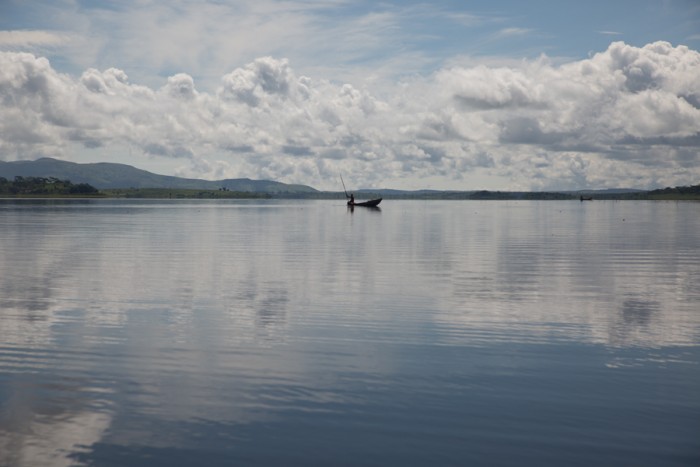
August 17th, 2016 by Rachel | Tags: Peace Corps | No Comments »
Traveling in Cameroon is both exhausting and an adventure. I share various scenarios of traveling in Cameroon to give you, the readers, an idea of how traveling in Cameroon is very different from the US and various other countries.
No Set Schedule
Instead of using the term “station,” such as “bus station,” we use the term “agency.” So, if we want to take a bus to a place, we say we are going to a “bus agency.” Many bus agencies do not have a set schedule on when the buses depart. Agencies wait until the buses are overfilled to depart. This means that one can wait for as long as an hour or two before finally departing. Even if a bus is waiting just for one more person to purchase a ticket, it will still wait for one person. I was in a situation where I waited for thirty minutes just for one more person to board the bus.
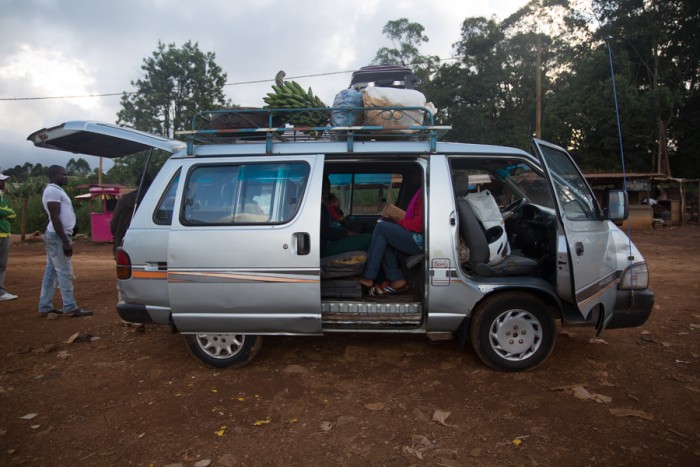
People are waiting in the van for more people to fill up before they can finally leave. The wait time can be as long as a couple hours.
Squashing in the Car
Agencies and drivers do overfill their buses and cars. In an ordinary sedan taxi, there can be as many as 11 people inside the car. A few of them would be small children sitting on laps. There can be as many as eight adults in a sedan car. The driver will often have two people in the front passenger seat and another passenger sitting with the driver in the driver’s seat. Then there will be four people in the back seat. The reason they overfill the cars is so that the drivers and agencies can maximize their profit. Buses can also be overfilled too. When there are supposed to be only four people in each row, sometimes there are five or six people in a row.
Bad Roads/Unpaved Roads
Roads come in wide variety of form in Cameroon. There are roads that are paved and very smooth. There are roads that are paved but have clearly not been maintained in a decade and have too many pot holes. There are roads that are completely unpaved.
Due to the road conditions. traveling can often be long, exhausting and sometimes perilous. If the entire road between Bamenda and Yaounde was perfectly paved and smooth, the travel time would take less than six hours. However, because one-third of the road which is paved but has never been maintained, the travel time takes eight to nine hours. There is a road that goes from Bamenda all the way directly to the village where Alex lives. If I could travel on that road, which is off limit to Peace Corps Volunteers due to security reasons, I could get to his post in 12 hours during the dry season and in 24 hours in rainy season. It’s important to note that most of that road is unpaved. If that entire road was paved, I could get to his post in three to four hours!
I have often talked about how if all roads were paved in Cameroon, the economy of the country would improve greatly as people would not only be able to transport more goods more easily, but also save money on the cost of gas. When I talk to my Cameroonian friends about the road situation, they tell me that Cameroon is definitely working on improving the road situation but they are doing it slowly. I have been told that they are currently focusing on improving the road between Bamenda and Mamfe, known as the Trans-African Highway, as that road is a gateway to Nigeria. They are also focusing on improving the road between Bamenda and Tibati, a town in Adamawa near Alex’s village so that Cameroonians can have an easy access to the Adamawa region from the Northwest region. I have also frequently asked when the road between Bamenda and Bafoussam, the part of the road to Yaounde from Bamenda that is totally destroyed from lack of maintenance, is going to be fixed and the answer is always often that they’re not worrying about that road now because they want to focus on other roads I mentioned above.
This video shows an example of a road that has not been maintained and has many potholes.
Weather Conditions
While in the US, when there is a severe snowstorm, school and work often close at the request of the government. In Cameroon, when there is severe rain, there are no cars traveling on unpaved roads. The unpaved roads can also be quite treacherous during rainy season as they become very muddy and slushy. They can sometime be impassable. But, if a driver has some motivation, they can get through by driving slowly or getting the passengers to help push the car.
Last month, I was unexpectedly stuck at Alex’s post for an additional day due to severe rain. On the day I was supposed to be leaving, rain was pouring very hard from 4 AM until evening. There were no moto-bikes or cars going out of his village to the closest town to catch a car to the train station. Even if there was a moto-bike or car, according to Alex, it was too dangerous to travel on the road as the road is nothing but wet globs of mud putting vehicles in risks of dangerous accidents. Fortunately the pouring rain stopped that night although a little bit of rain still came intermittently throughout the night, and I was able to leave the village the following morning.
Many volunteers are posted in villages where the only way to access the village is by taking unpaved roads. They have faced situations when cars get stuck in the mud, and all the passengers have to get out and help push the car. There have been times when cars can’t get through and have to turn around due to wet mud. Even when if they can pass through the unpaved road on a rainy day, the price of the car ride can double as the travel time can take much longer, sometimes double or triple the amount of time it takes on a sunny day during dry season.
This video by Peace Corps Volunteer Ashley W. shows an example of an unpaved road during rainy season.
Old Cars
Majority of the cars in Cameroon are old. Based on the design of the cars, they are at least 20 years old or even 30 years old.
Taxis
Taxis in cities operate similarly to subways. They often run only on main roads and make frequent stops to pick up and drop off passengers. This means that unless one wants to pay a hefty price tag, no one has their own taxi. Because taxi drivers want and need to maximize their profit, they fit as many people as they can in a car. This is what a typical taxi ride can look like: I flag a taxi. There are already two people in the car. I tell the driver the destination. If the driver is going in the direction of the destination where I want to go, the driver will honk a horn signaling me to get in the taxi. If the driver is not going in the direction of the destination, the driver drives off. So, if I get in the taxi, the taxi can stop again after a half mile of driving to drop off a passenger. Then the taxi can stop again after another half a mile to pick up another passenger. Then the taxi can stop again after another mile of driving and pick up another passenger. Then I can finally arrive at the destination. Then I have to sometimes walk to the place where I want to actually be which may not be on a main road. The taxi rides can often be slow and long because they make so many stops.
Moto Bikes
Moto bikes is a very common mode of transportation. It is often preferred in the cities when one wants to get from one place to another place without being dropped off of a main road and having to walk to the destination. If one doesn’t want to face the long ride with many stops in a taxi, the bike is also preferred because they can reach the destination faster.
No Traffic Lights
There is no traffic lights except in Yaounde and Douala. There isn’t even a traffic light in Bamenda, the third largest city in the country. While there are roundabouts, the drivers have to be very defensive by making left turns carefully and crossing four way roads. At the four way roads, which can be called four way stop, there are normally no stop signs although if there is one, all ignore it.
No Pedestrian Crossways
There is no pedestrian crossways except two in front of a hospital in Bamenda. I have not come across crossways elsewhere in Cameroon. Waking to the other side of the road can be nerve-racking. One has to run the other side of the road to be able to cross because pedestrians often do not have the right of way.
Train
There is a train that runs south and north. For those living in the Grand South region, it serves as the gateway to the Grand North and for those living in the Grand North, it serves as the gateway to the Grand South. The train has three classes: Wagon Lit (Sleeper Car), First Class and Second Class. To go to and from Yaounde and Ngaoundere, it takes 14 hours. While the train is well built from the inside, it can often break down. Because there is only one train going in each direction, if the train breaks down, there could be no train for at least 24 hours.
However, in spite of travel difficulties, we’re often treated with most incredible views of Cameroon while traveling.
August 16th, 2016 by Rachel | Tags: Disability, Peace Corps, Persons with Disabilities of Cameroon, Photography | No Comments »
During the last seven months of my Peace Corps service, I am featuring photographs and stories of several persons with disabilities living in Cameroon. All the photos are part of a series called “Persons with Disabilities of Cameroon.” The goal of presenting photographs and their stories is to create better awareness about the plights that persons with disabilities face in a developing country. When I return to the US, I hope to exhibit this series in a gallery and publish a book to educate others about persons with disabilities living in developing countries as this topic is so rarely discussed in the media.
I met Tabitha during my first month in Bamenda. She crawled into the office, which shocked me. I asked her why she didn’t have a wheelchair. She explained to me that she did have a wheelchair but couldn’t use it for various reasons. I met her again several times throughout my two years in Peace Corps. I’ll allow her to speak from her own voice about her life and why she does not always use a wheelchair.
“I walked up to five years. So I just had fever. And from there I became so weak and paralyzed. I had general poliomyelitis. Then after that I started going like a newborn baby. It’s like because i was so weak and then from there I could not walk up again. As I could not walk up again, my parents took me to so many hospitals and doctors and traditional doctors. When they took me to all doctors and naive doctors, there was no help. I had to use calipers. Then I used tricycle for outing and wheelchair for when I am in the house.”
“At first, I had many challenges while I was at school. People were advising my mother not to carry me to school because I was a disabled child. My brother and sister pushed me on tricycle. Roads are not accessible. When I was about to go to secondary school our principal never wanted to meet me or take me to school because he said I was disabled. While in school, I was the only disabled child in school. It was actually a big challenge because since I was the only one there was nobody like me again in school. Students always looked at me differently. They thought it was strange to see a disabled person in school. The doors to the classrooms were not accessible. I could not reach the blackboard because I could not stand.”
“I dropped out of secondary school, in form three. I went to technical school. I got pregnant. No one stopped me from going to school but I decided myself. I thought I no longer needed school because I became a mother. I am a mother of one child.”
“I don’t have job opportunities. For that reason, I find difficulties for providing my basic needs. Like today I need money for house raise and money to service my wheelchair and tricycle. I also find difficulties moving around because roads are still very inaccessible. When I want to take a taxi, the drivers do not have the patience to wait and maybe put my wheelchair and tricycle on the car. When I am traveling, they ask me to pay for my wheelchair or tricycle to put in the car. There are times when I am going too far, I need personal assistance which would make things too costly for me. The personal assistance would help me with the wheelchair. I have to pay for his transportation, lodging and feeding.”
“I walk on my knees when I am in places where my wheelchair cannot move. It happens often because most places are not accessible. Most of the time I walk on my knees. I am not the only one facing the problems. There are so many other persons with disabilities facing the same problems like me. And there are so many more who are facing problems that are worse than mine.”
August 6th, 2016 by Rachel | Tags: Peace Corps | No Comments »
As the Closing of Service conference approaches for all the volunteers including myself, who came to Cameroon exactly 22 months ago, I have mixed feelings about going to the conference. I am excited to look forward to seeing my family and friends at home in the States. I am sad that I will soon have to say good bye to my wonderful Cameroonian friends. I am proud to be able to see the work I have been able to accomplish in the past almost two years.
However, it is hard to know that about one-third of my cohort will not be there because they ended their service earlier than expected. They should be at the conference celebrating with us the hard work they have put in during their shorter service. Even if they were in Cameroon for only two months, they should still be recognized for their willingness take the courage to immerse in a challenging environment.
Peace Corps is not a competition. It’s not about who has the best survival skills and stay in their host country the longest. It’s not about pushing out those who struggle to adapt to a foreign environment. We join Peace Corps because we want to contribute to creating positive changes while facing adversity.
I am reaching close to end of the service not only because of my resilience and perseverance. I have also come so far because I have been so fortunate to have a great support system. My work partners, Ruth, Samuel, Veronica, Hilda, Richard, Dr. Alfred, Antonia, and Regina deserve a huge credit for their contribution to the success of my service. It was their determination, hard work and strong desires to make contributions to create an impact that made them great partners. They are the ones who mobilized persons with disabilities to come to the workshops. When I was feeling lost and lonely early on my service, Ruth, Samuel and Hilda held my hands and guided me by showing me how to navigate the city, how to shop and find the best places to eat, and live in the Cameroonian life. They introduced me to many warm and kind people. They invited me to their homes for Christmas. Ruth helped me shop for furniture and haul them to my home. She also treated me carrot soups when I was feeling sick. Hilda took me to a wedding so that I could see how it’s done in Cameroon. I could go on and on with many more examples of how their generosity helped shape my Peace Corps experience very positively. My family, which not only includes my parents and siblings but also my grandparents and relatives, have definitely made a difference throughout my service. If it weren’t for their care packages filled with American treats and phone calls or video chat, I would have struggled more. They helped me alleviate homesickness. My friends around the world are given credit too for taking the time to read my posts on Facebook and blog and listen to my feelings through private messages and offer me support through words of encouragement and kindness. At last, four Peace Corps volunteers in Cameroon, Alex, Jasmine, Lona and Shatianna, especially Alex who has been the greatest boyfriend and my rock, have been with me by my side all throughout the service. They listened to me through my teary and angry moment but also proud and happy moments. They offered wise advice and gave me hugs. If it weren’t for their visits to my home, phone calls, texting and chats on Facebook, I would have struggled more and felt lonely. They were the people who perfectly understood my current life because they were living in the same life too.
Almost all who ended their service earlier than expected were faced with circumstances that they could not control. Some were medically separated simply because of being born with genetic conditions that made it difficult for them to live in a different environment or because of bad luck in getting hit with bacteria and infections or because of simple misunderstandings with medical professionals. Some were forced to leave their post because of a small number of people posing security threats to volunteers. Some were unfortunately placed at a bad post where they had unmotivated work partners who would not support them. I do want to note though that Peace Corps did offer them new posts but they chose to end their service because they did not want to go through the move all over again and learn a new environment again. There is absolutely no shame in their decision. Some ended their service because they lacked a good support system to help them thrive in their work and integration in the community. It truly takes a village for a volunteer to succeed.
When I am at the conference, while I will recognize how far I have in the past two years, I will also be thinking about all the volunteers who are not in attendance.
